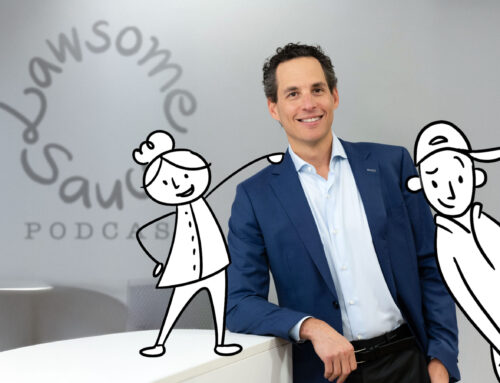HOW BIGLAW CAN MIRROR SMALL FIRM ATTORNEY ENGAGEMENT
By Michelle Genet Bernstein LAW360 | July 13, 2021
As law firms return to the office post-pandemic, BigLaw has the unique opportunity to hit refresh and implement policies and practices that smaller firms naturally employ — policies that can provide more junior and midlevel attorneys a greater sense of satisfaction and a more balanced work experience, which ultimately will result in improved morale and more steady professional development.
BigLaw comes with some big benefits: Attorneys work on complex, high-stakes and high-profile matters, while robust resources and staff assistance ensure comprehensive support.
I spent more than 10 years at a BigLaw firm in New York City. During my time there, my cases were intellectually stimulating. I learned a lot and worked hard. Overall, I was satisfied with the job, my career trajectory, and the semblance of a work-life balance I was able to achieve, especially after I transitioned to a flexible time arrangement after having my first child.
I never seriously considered transitioning to a smaller firm until my family relocated to Florida during the pandemic. Opportunity presented itself in a Miami boutique litigation firm. The smaller team collaboration, ownership and accountability embedded in the small-firm paradigm offered an attractive opportunity. I gave my notice and prepared to take the leap.
I noticed quickly that the smaller-firm environment lends itself more naturally to self-realization and consistent professional development. Even junior attorneys are substantively engaged from the outset. With fewer attorneys, everyone is expected to do their part.
Junior attorneys know the ins and outs of their cases, and can juggle multiple matters, with fewer resources. Maybe they are scrappier. They are comfortable arguing motions in court (and over Zoom), and regularly take and defend depositions.
They provide sound legal advice directly to their clients. They work side by side and collaborate with their more experienced colleagues.
They are required to take decisive action and command of the courtroom. At smaller litigation firms, oral advocacy is a skill learned early on and practiced frequently.
In contrast, advocacy opportunities at BigLaw firms can be few and far between, especially for associates. The top partners typically argue the key motions, even though the more junior attorneys spend the bulk of the time in the trenches reviewing the documents, researching the law and writing the briefs.
The attorney who worked tirelessly on the motion may not be invited to counsel table or even the courtroom. Professional development can get stagnated that way.
Judges are taking note of these dynamics. There has been a widespread trend among both federal and state court judges to encourage the participation of less experienced attorneys in complex commercial court proceedings, including scheduling conferences, status conferences, hearings on discovery and dispositive motions, and examination of witnesses at trial.
A number of federal judges and magistrates even offer inducement for the participation of less experienced attorneys, including standing orders in which they offer oral argument or additional time for oral argument on a disputed motion if a junior attorney will make all or most of the presentation.
In addition to more advocacy opportunities, attorneys at smaller, more tightknit firms benefit from regular feedback, as these attorneys can be more easily assessed individually, on the quality of their work product, efficiency with getting that work done, and their contribution to the betterment of the firm and its clients.
BigLaw firms can do the same. There is no doubt that a tally of billable hours is a straightforward metric to assess productivity, but it should not be the only metric.
Attorneys who appreciate that their compensation is driven by the quality of their work more so than the number of hours worked naturally strive to work more efficiently and to obtain better case assignments. A collaborative environment with ownership and accountability often leads to a similar amount of hours worked but with a higher level of efficiency and satisfaction.
BigLaw firms take on large-scale matters that require armies. These cases can be valued in the hundreds of millions, if not billions, of dollars and span years in extensive discovery. Associates assigned to those cases will inevitably work upward of 70-hour weeks reviewing thousands of pages of documents in cases they may know little about substantively, and for clients they have not and likely will never meet directly.
There are benefits to the attorneys who put in the time, no doubt. Research and document review are important building blocks, and it takes time in the trenches to build the skills required to be an effective litigator. The so-called grind is an important component of training — I am a better lawyer for it. That I was able to balance that grind was critical.
However, despite the stature of these cases, the attorneys who spend long periods of time as one of many on large document review or research teams still may find themselves less satisfied at the end of a long workweek than their peers who, for example, spend the same amount of time preparing for and taking key witness depositions.
The latter attorneys likely are more invested in their work and their direct role in the outcome of the case. At the end of those weeks, they walk away proud of what they have accomplished; meanwhile, the attorneys who were engaged overtime in more mundane work will probably just walk away exhausted.
BigLaw firms can encourage all attorneys to keep apprised of the big picture. Allowing more junior attorneys the opportunity to participate in strategy discussions, understand the clients’ objectives and have a say in scheduling fosters a healthier learning environment that leads to better engagement and satisfaction.
The best attorneys can see a case from all angles, and game out events months or even years ahead. That is a skill set based on experience, and helping junior lawyers build it steadily is key to improved morale and satisfaction.



